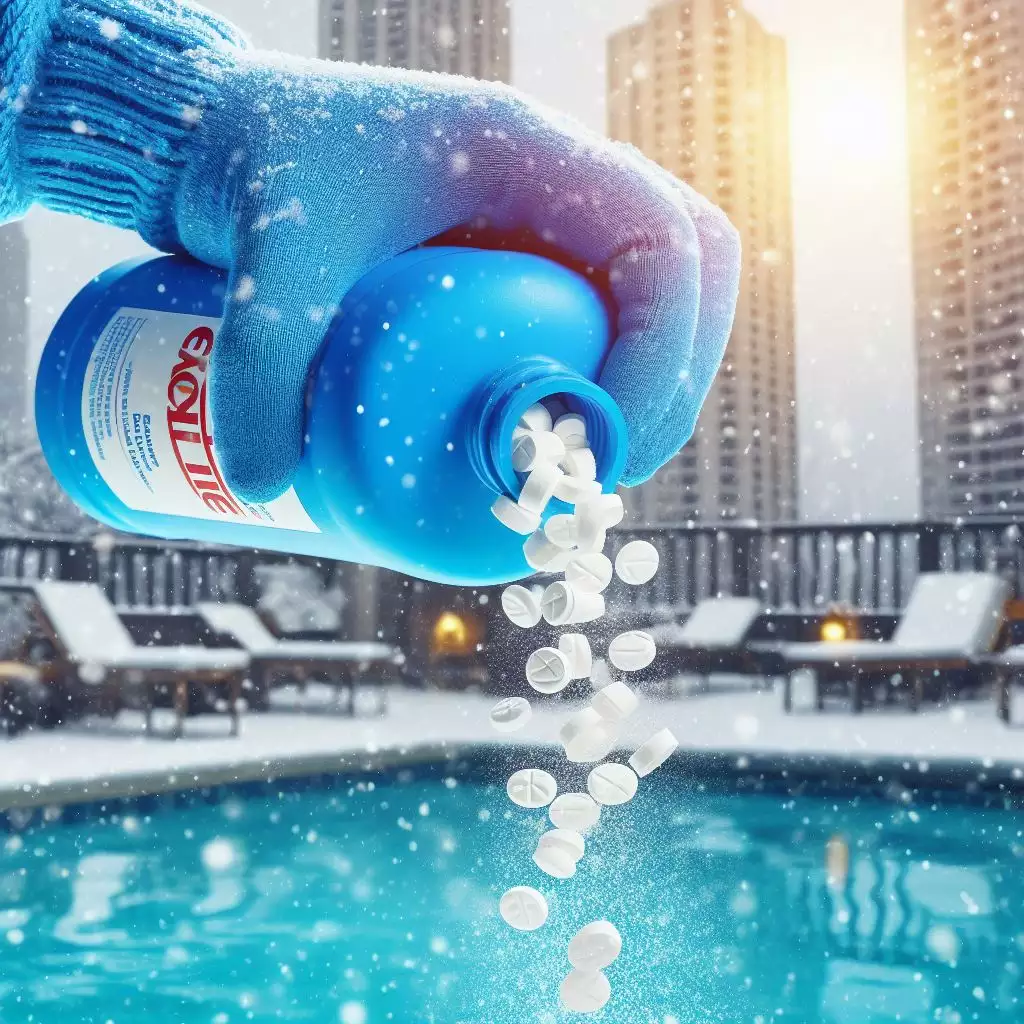When winter arrives, the usage of swimming pools decreases. Everyone wonders how to maintain a swimming pool during the winter. One common question is: Should chlorine tablets be added to the swimming pool in winter? In the cold season, the water temperature of the swimming pool drops, and the microbial activity in the water slows down. Does this mean that we can reduce or suspend the use of chlorine tablets? Therefore, this paper will discuss whether it is necessary to continuously add chlorine when using swimming pools in winter and provide relevant suggestions.
Lowering water temperature causes the microbial reproduction rate to slow down Low temperatures in winter significantly decelerate the proliferation of microorganisms in water bodies. The decrease in water temperature directly affects the metabolism and growth of microorganisms, resulting in a lower reproduction rate. Under low-temperature conditions, microorganisms require fewer nutrients, leading to reduced metabolic activity and a lower frequency of cell division. Due to the slowdown of microbial activity, the clarity of swimming pool water in winter is relatively high. A lower number of microorganisms means fewer suspended solids and microbial particles in the water, making the water more transparent.

The importance of preventing water quality problems in winter Winter is a time when the swimming pool is less used, but water quality problems are more likely to occur at this time. In the cold season, if sufficient chlorine tablets are not added, microorganisms and bacteria in the water will multiply. This will cause the water quality to deteriorate, producing odor, turbidity, and other problems. Regularly dispensing chlorine tablets can prevent water quality problems and ensure the stability and cleanliness of the swimming pool’s water quality.
Sharing experiences in preventing pool problems in cold seasons Some swimming pool managers have valuable experience in maintaining swimming pools in the cold season, such as adjusting the frequency and dosage of chlorine to respond to changes in water temperature caused by lower temperatures. This exchange of experiences has made us realize that chlorine tablets must be added during the cold season as a practical guide for pool maintenance.
In winter, chlorine must be added to the swimming pool. According to relevant national standards, the chlorine content of the swimming pool should be within the range of 0.3-0.5 ppm. This is because the proper chloride ion levels are crucial to maintaining cleanliness and hygiene in the water environment. If the chlorine in the pool is not sufficient for disinfection, a series of problems will occur.
Firstly, the absence of chlorine in the swimming pool is likely to harbor bacteria. Chlorine has an efficient bactericidal effect and can effectively kill germs and microorganisms in the water, preventing their growth. Too little chlorine in a swimming pool can easily breed bacteria and make swimmers sick.
Secondly, pool water without enough chlorine can become cloudy and turbid. Chlorine not only kills bacteria but also effectively removes organic matter and particles in the water, maintaining water transparency. If the water lacks sufficient chlorine, organic matter and microorganisms will accumulate, making the water turbid, affecting the swimmers’ experience, and increasing the potential harm of water quality to the human body.
In the management of winter swimming pools, many factors determine whether to use chlorine tablets. Although lower temperatures at low temperatures will slow down the activity of microorganisms, care must be taken to maintain water quality to prevent cessation of use in winter. On this basis, combined with expert opinions, the scientific and reasonable addition of chlorine tablets is of great significance to ensure the stability and cleanliness of the water quality of the swimming pool in winter and the healthy operation of the swimming pool.

 Instant
Quote
Instant
Quote Email
Us
Email
Us